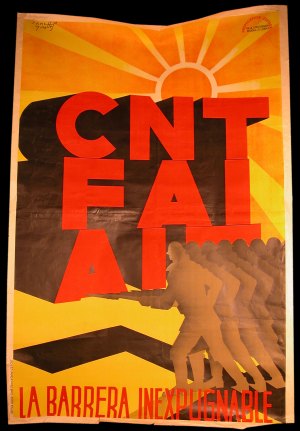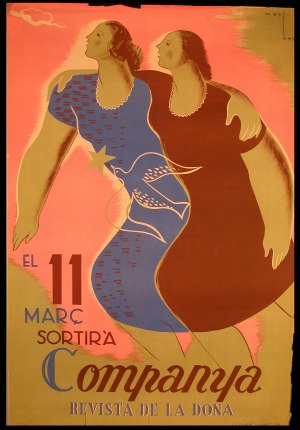

Written: 5 April 1931.
Source: The Militant, Vol. IV No. 11, 1 June 1931, p. 1.
Transcription/HTML Mark-up: Einde O’Callaghan for the Trotsky Internet Archive.
Copyleft: Leon Trotsky Internet Archive (www.marxists.org) 2012. Permission is granted to copy and/or distribute this document under the terms of the Creative Commons Attribution-ShareAlike 2.0 .
1. The monarchy has lost power, but it hopes to win it back. The possessing classes are still firm in the saddle. The bloc of the republicans and the socialists has based itself upon the republican upheaval in order to hold back the masses from the road of the socialist revolution. No faith in words. Give us deeds! In the first place: arrest the most prominent leaders and supporters of the old regime, confiscate the property of the dynasty and its most compromised lackeys! Arm the workers!
2. The government, supporting itself on the republicans and socialists, will make every effort to extend its base towards the Right, in the direction of the big bourgeoisie and will seek to capitulate in order to neutralize the church. The government is an exploiters’ government created to protect itself from the exploited. The proletariat is in irreconcilable opposition to the government of the “socialist” republican agents of the bourgeoisie.
3. The participation in power of the socialists means that violent clashes between the workers and the socialist leaders will increase. This opens up great possibilities for the revolutionary policy of the united front. Every strike, every demonstration, every approach of the workers to the soldiers, every step of the masses towards the real democratization of the country will henceforth collide with the resistance of the socialist leaders acting as men of “order” It is therefore all the more important for the Communist workers to participate in a united front with the socialist, the syndicalist and the non-party workers, and to draw them under the leadership.
4. The Communist workers today constitute a small minority in the country. They cannot aspire to power immediately. At the present moment, they cannot set themselves as a practical task the violent overthrow of the republican-socialist government. Any attempt of this sort would be a catastrophic adventure. The masses of workers, soldiers and peasants must pass through the stage of socialist republican illusions in order to rid themselves of these illusions all the more radically and conclusively. Not to be trapped by phrases, to look the facts straight in the face, stubbornly to prepare the second revolution, the proletarian revolution.
5. The task of the Communists in the present period is to win the majority of the workers, the majority of the soldiers, the majority of the peasants. How can this be done? By carrying on agitation, by training cadres, by “explaining patiently” (Lenin), by organizing. All this on the basis of the experience of the masses and the active participation of the Communists in this experience: a broad and audacious united front policy.
6. The Communists do not take any step, with the republican-socialist bloc or with any part of it, which either directly or indirectly could restrict or weaken the Communist freedom of criticism and agitation. Everywhere the Communists will tirelessly explain to the masses of the people that in the struggle against every form of monarchist counter-revolution, they will be in the front ranks, but that for such a struggle no alliance is needed with the republicans and the socialists, whose policy will inevitably be founded on concessions to the reaction and will tend to cover up its intrigues.
7. The Communists issue the most radical democratic slogans; complete freedom for the proletarian organizations, freedom of local self-administration, election of all officials by the people, admission to suffrage of men and women from the age of eighteen, etc., formation of a workers’ militia and later on of a peasants’ militia. Confiscation of all properties of the dynasty and of the church for the benefit of the people, above all of the unemployed, the poor peasants, and for improving the conditions of the soldiers. Complete separation of church and state.
All civil rights and political privileges to the soldiers. Election of officers in the army. The soldier is not an executioner of the people, nor an armed mercenary of the rich, nor a Praetorian but a revolutionary citizen, blood brother to the worker and the peasant.
8. The central slogan of the proletariat is that of the Workers’ Soviet. This slogan must be proclaimed, tirelessly and constantly popularized, and at the first opportunity we must proceed to realize it. The workers’ Soviet does not mean the immediate struggle for power. That is undoubtedly the perspective, but one which the masses can attain only through their own experience and with the help of the work of enlightenment of the Communists. The workers’ Soviet today means the assembling of the scattered forces of the proletariat, the struggle for the unity of the working class, for its independence. The workers’ Soviet takes up the questions of strike benefits, of feeding the unemployed, of connections with the soldiers in order to prevent bloody encounters with them, of connections between the city and country in order to assure the alliance of the workers with the poor peasants. The workers’ Soviet includes representatives of the army corps. It is in this way and only in this way that the Soviet will become the organ of the proletarian insurrection and later on the organ of power.
9. The Communists must immediately work out a revolutionary agrarian program. Its basis must be the confiscation of the lands of the privileged and rich classes, of the exploiters beginning with the dynasty and the church, for the benefit of the poor peasants and the soldiers. This program must be concretely adapted to the different parts of the country. In every province, each with its own economic and historic peculiarities, there must immediately be created a commission for the concrete elaboration of the agrarian program, in close cooperation with the revolutionary peasants of the locality. We must know how to hear the voice of the peasants in order to formulate it in a clear and accurate manner.
10. The so-called Left socialists (among whom there are many honest workers) will invite the Communists to make a bloc and even to unite the organizations. To this the Communists answer:
“We are ready in the interests of the working class and for the solution of definite concrete tasks to work hand in hand with any group and with any Proletarian organization. Precisely towards this end do we propose to create Soviets. Workers’ representatives belonging to different parties, will discuss within these Soviets all the timely questions and all the immediate tasks. The workers Soviet is the most natural, the most open, the most honest and the healthiest form of this alliance for common work. In the workers’ Soviet, we Communists will propose our slogans and our solutions, and we-will endeavor to convince the workers of the correctness of our course. Each group must enjoy full freedom of criticism in the workers’ Soviet. In the struggle for the practical, tasks proposed by the Soviet, we Communists will always be in the front ranks.”
This is the form of collaboration which the Communists propose to the socialist, the syndicalist and the non-party workers.
By insuring unity in their own ranks, the Communists will win the confidence of the proletariat and of the great majority of the poor peasants, they will take power arms in hand, and they will open up the; era of the socialist revolution.
Kadikoy, April 5, 1931
  Return to Trotsky’s
|

Last updated on: 4.1.2013